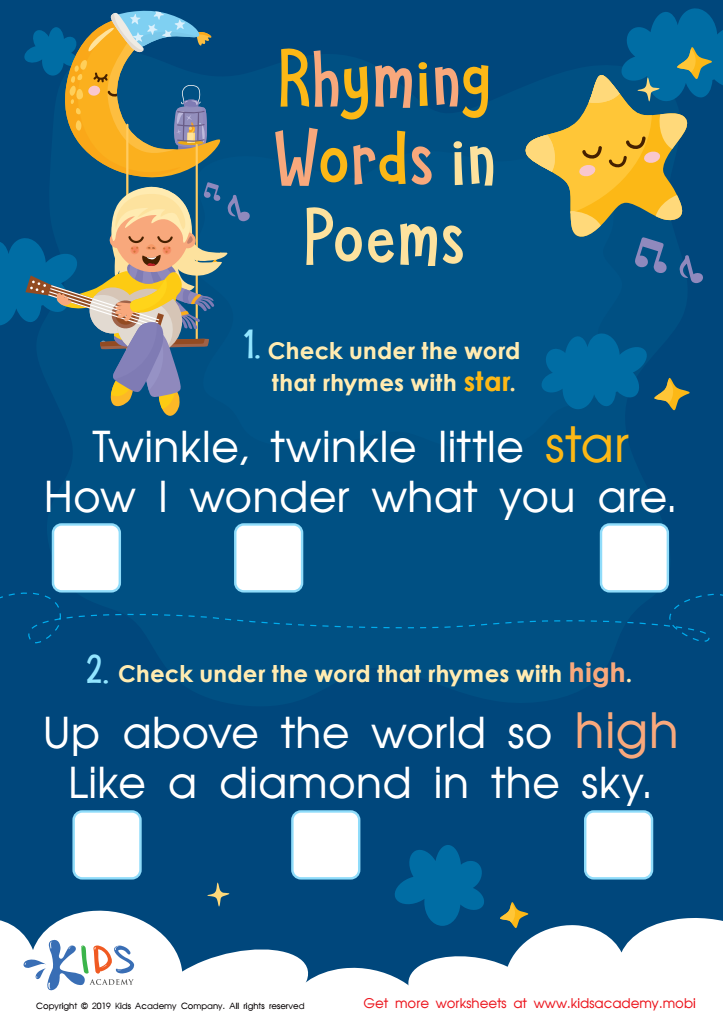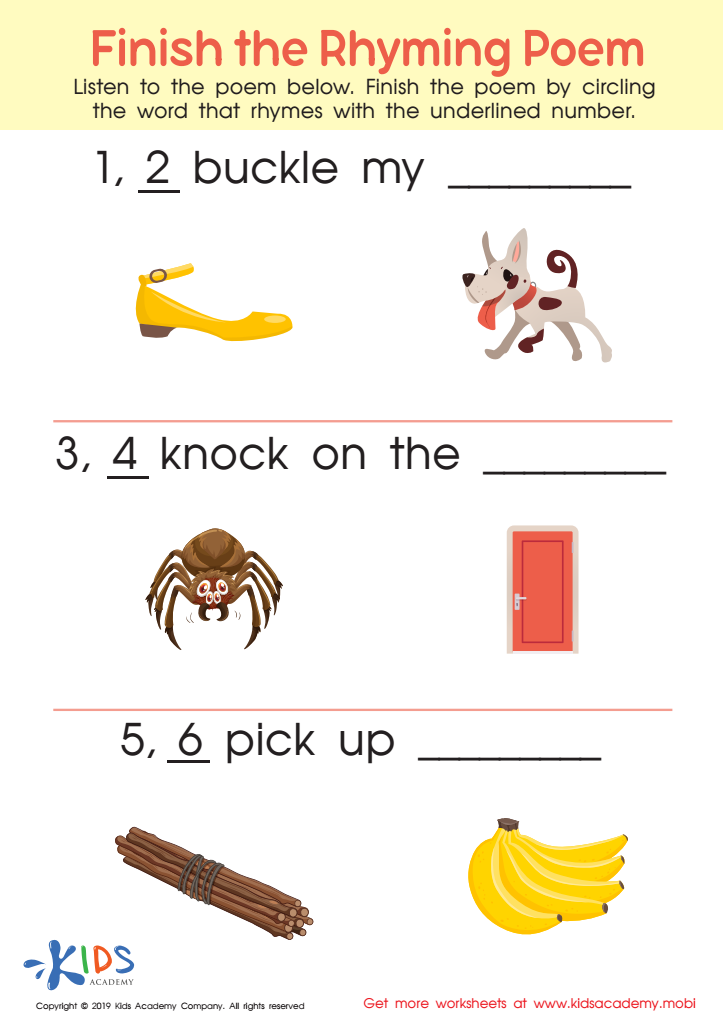Vocabulary enhancement Normal Rhyming Words Worksheets for Ages 4-5
5 filtered results
-
From - To
Boost your child's vocabulary with our engaging Normal Rhyming Words Worksheets, designed specifically for ages 4-5! These interactive activities help young learners recognize and create rhyming words, a crucial step in language development. Through fun exercises and colorful illustrations, children will enhance their phonemic awareness and language skills while nurturing their creativity. Our worksheets foster a love for reading and promote early literacy by encouraging children to explore sound patterns and word associations. Perfect for preschool or at-home learning, these resources offer a playful yet effective approach to vocabulary enhancement. Start your child's linguistic journey today with our delightful worksheets!


Rhyming Words Rhyming Worksheet


First Words: Picture Rhymes Worksheet


Rhyming Words in Poems Worksheet


Finish Rhyming Poem Worksheet
Vocabulary enhancement through normal rhyming words is crucial for children ages 4-5 as it lays the foundation for their language development, literacy skills, and phonemic awareness. At this stage, children are eager to explore sounds and words, making it an ideal time for engaging them with rhyming activities. Exposure to rhyming words helps young learners recognize sound patterns, which is essential for developing reading and writing skills later on.
Parents and teachers can create a rich linguistic environment by incorporating playful rhyming games, songs, and stories, thereby encouraging children to experiment with language. This not only boosts their vocabulary but also enhances their memory and comprehension abilities. Furthermore, rhyming cultivates listening skills, promoting auditory discrimination, which contributes to higher reading fluency and comprehension.
In addition to cognitive benefits, learning through rhyme fosters creativity and imagination, allowing children to express themselves in playful and inventive ways. When parents and teachers prioritize vocabulary enhancement with rhyming words, they help instill a joy for language in young learners, setting the stage for lifelong literacy and a love for reading. Supporting vocabulary development during these formative years is integral for success in their future educational journeys.
 Assign to My Students
Assign to My Students





.jpg)










